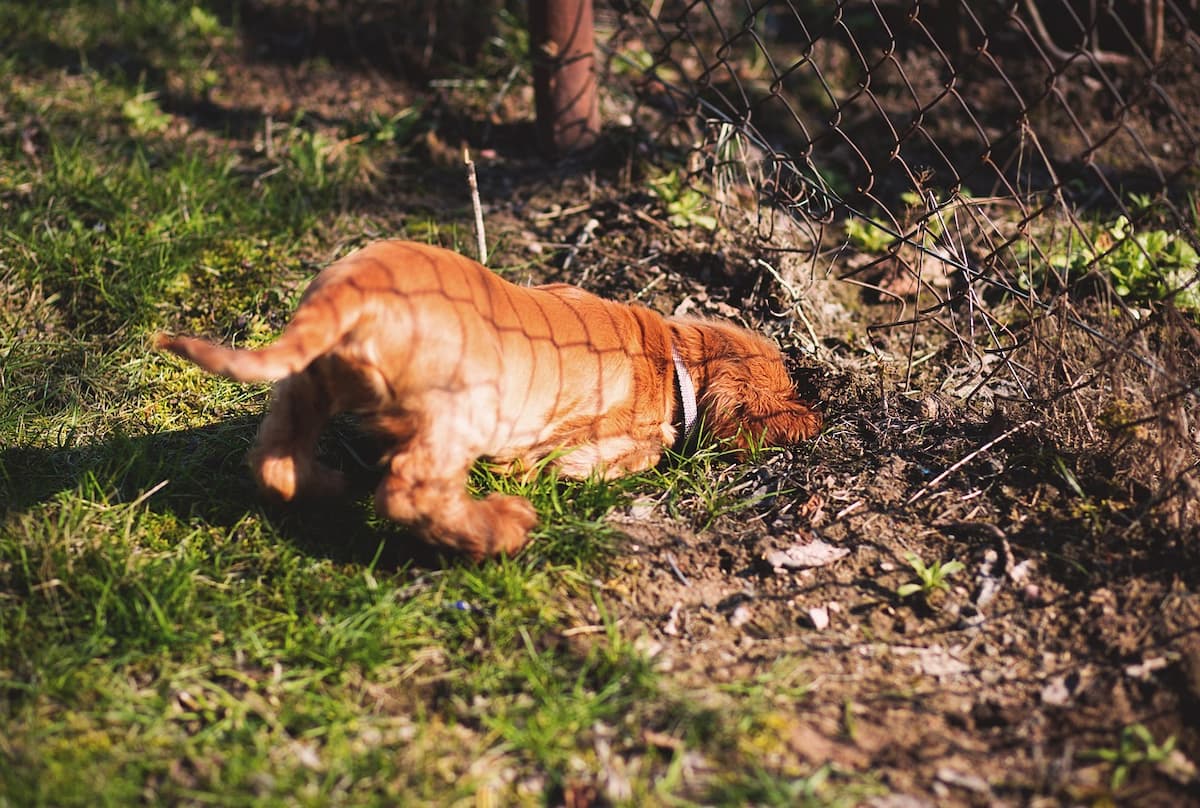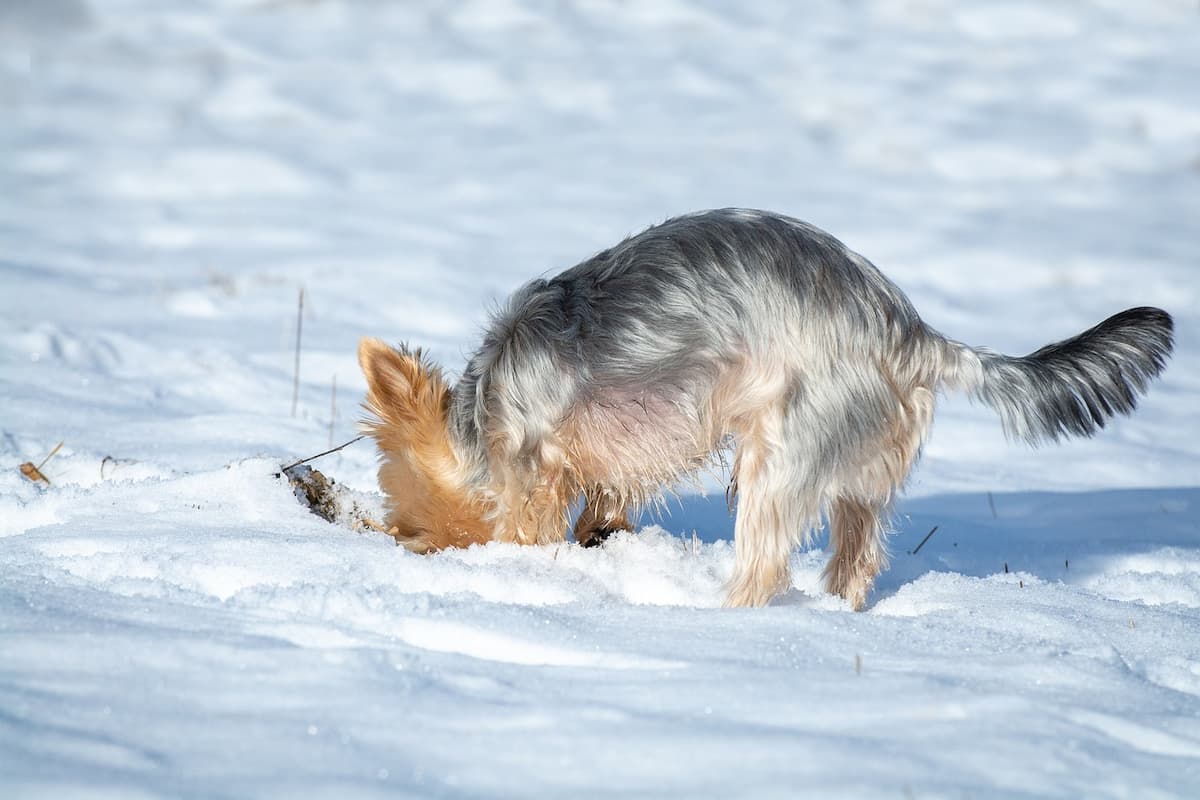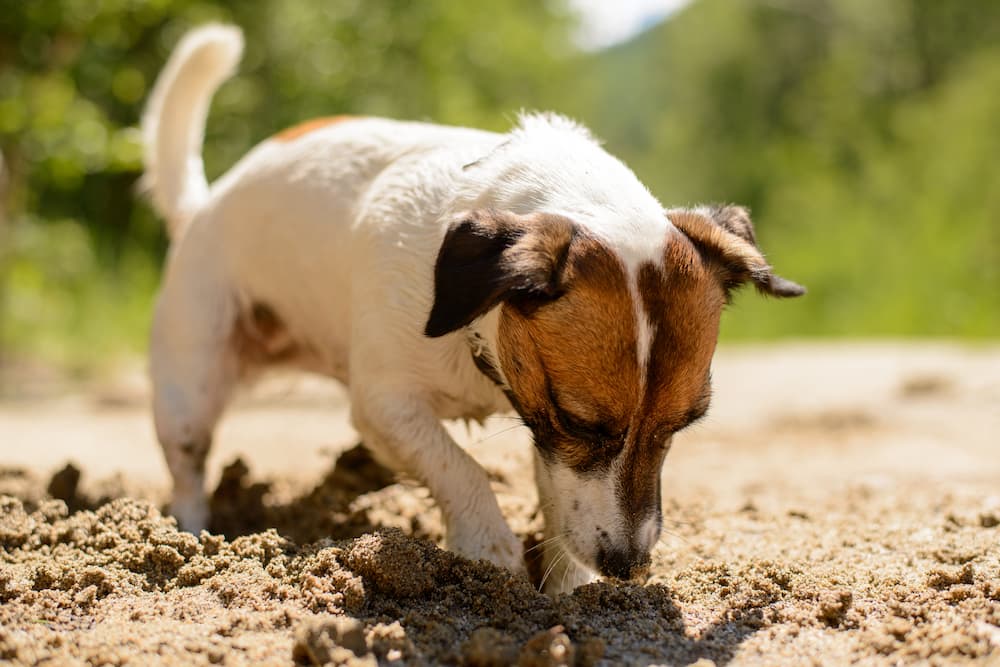Have you ever settled down on the couch after a long day, only to have your four-legged friend launch a digging expedition right on top of you?
You’re not alone in experiencing that.
We’ve all been there, wondering why our beloved dogs insist on treating us like buried treasure.
You might think it’s just a quirky behavior, but there’s actually a lot more to it than meets the eye.
Why Does Your Dog Dig on Top of You?
Do you ever wonder why your furry friend insists on digging on you?
It can be quite puzzling but there are actually several reasons behind this quirky behavior:
1. Marking their territory: Dogs have a strong instinct to mark their territory.
By digging on you, your pup is leaving their scent on your clothes or skin, essentially claiming you as their own.
It might seem odd to us humans, but for dogs, this is a way of showing ownership and ensuring that other animals understand who you belong to.
2. Seeking attention and affection: Dogs often dig on their owners as a way to seek attention and affection.
They may have noticed that when they start digging, you give them extra attention or pet and scratch them, reinforcing the behavior.
This can be especially common in dogs who crave physical touch and thrive on human interaction.
So, next time your pup starts digging on you, don’t be surprised if they look extra adorable, seeking your love and affection.
3. Relieving anxiety or frustration: Digging can also serve as a coping mechanism for dogs experiencing anxiety or frustration.
Similar to how humans might bite their nails or fidget when feeling stressed, dogs may resort to digging behaviors to release pent-up energy or alleviate their unease.
If you notice your dog digging on top of you frequently, it might be worth considering if they are facing any anxiety or frustration triggers in their environment.
4. Seeking shelter and security: Digging can also be a sign that your furry friend is seeking comfort or trying to escape from something they find stressful.
Your dog might dig a hole to create a cool spot to lay in on a hot day or to uncover cool soil to lie on.
Additionally, they may be trying to escape from loud noises, thunderstorms, or fireworks.
By digging on you, your dog is essentially trying to create a cozy little spot to relax and feel safe.
Providing a safe and comfortable space for your dog, along with positive reinforcement techniques during stressful situations, can help calm their anxiety and reduce their digging behavior.
What Can You Do to Curb Your Dog’s Digging?
One effective way to curb your dog’s digging habit is to provide them with plenty of exercise and mental stimulation.
Dogs need to burn off their energy and keep their minds occupied, so make sure to take them for regular walks, play fetch, or engage in fun training sessions.
You can also set up a designated digging area for your furry friend in your yard. This can be done by sectioning off a specific spot in your yard where they are allowed to dig to their heart’s content.
Consider filling this area with loose soil or sand, making it attractive and rewarding for them to dig.
Place some of their favorite toys or treats in the designated area to encourage them to focus their digging efforts in that spot. This allows them to satisfy their digging instincts in a controlled manner, saving your flower beds from further destruction.
Another helpful tip is to create a dog-friendly environment by providing alternative entertainment options.
Install puzzle toys, interactive feeders, or Kong toys filled with tasty treats to keep your furry friend engaged.
Additionally, consider planting some pet-friendly plants in your garden, such as lavender, marigold, or catnip, that can help deter your dog from digging.
And don’t forget to praise and reward your pooch whenever they choose not to dig, reinforcing positive behavior and showing them that they can have just as much fun without destroying your yard.
Remember, curbing your dog’s digging habit takes time and patience.
It’s important to remain consistent with your training and provide them with the necessary outlets for their energy and instincts. With a little effort and understanding, you can transform your garden into a tranquil oasis for both you and your beloved canine companion.
While digging on their owner may vary from dog to dog, it’s important to address this behavior to maintain harmony in your household.
Teaching your dog alternative ways to seek attention or engaging them in stimulating activities like puzzle toys or playtime can redirect their digging behavior.
Additionally, ensuring that your pup has plenty of physical exercise and mental stimulation can also help reduce their urge to dig on you.
Remember, understanding and working with your dog’s natural instincts is key to creating a happy and healthy environment for your four-legged friend.
FAQ
Q: So, why do dogs dig on us?
A: First things first, let’s remember that digging is a natural behavior for our canine companions.
In the wild, dogs would dig to make a comfy den or to bury goodies for later.
Now, when our playful pups start digging on us, it often stems from an instinctual need to create a comfortable spot or to hide something special.
Q: Is it just a sign of affection or is there more to it?
A: Although it may feel like a loving gesture to have your pooch digging those tiny paws into your lap, it doesn’t necessarily indicate a display of affection.
Dogs are social creatures and enjoy being close to their human pack, but this behavior often comes down to their natural instincts.
Q: What triggers this digging behavior?
A: There are a few common reasons why dogs choose to dig on you. One possibility is that they simply want your attention.
Think of it as their way of saying, “Hey, look at me, I need some love and playtime!” If your pup isn’t getting enough exercise or mental stimulation, they may resort to this behavior to get your focus and engage with them.
Q: Are there any specific situations that prompt digging on humans more than others?
A: Absolutely! One primary trigger can be separation anxiety.
When dogs experience anxiety or fear from being apart from their beloved humans, they may start to dig on you as a coping mechanism.
It’s their way of seeking comfort and reassurance.
So, if you notice this behavior when you’re leaving the house or when they sense you’re about to go, consider ways to ease their separation anxiety and make them feel more secure.
Q: How can we redirect this behavior?
A: Redirecting the digging instinct is key! Provide your furry friend with appropriate outlets for their need to dig.
Make sure they have a designated digging area, like a sandbox or a specific patch of the yard, where they are free to unleash their inner archaeologist.
Remember to reward them with praise and treats when they choose the right spot, gradually steering their focus away from you and onto their designated digging zone.
Q: Can this digging be a sign of a deeper issue?
A: Occasionally, compulsive digging may indicate an underlying problem that merits further investigation.
If your dog is excessively digging on you, to the point of causing harm or distress, it might be worth consulting a veterinarian or a professional dog behaviorist.
They can help determine if there are any medical or behavioral concerns that need to be addressed.
Closing Remarks
From their innate instincts inherited from their wolf ancestors to their desire for attention and affection, our furry friends have more than a few tricks up their paws when it comes to digging on us.
It’s clear that dogs have a plethora of motivations driving this behavior, and it dramatically varies from one pooch to another.
So, the next time your beloved Fido starts excavating on your lap or chest, you’ll have a better understanding of what might be going on in their fluffy little head.
Remember, it could be their way of saying they’re feeling secure, seeking comfort, or simply trying to bond with you on a deeper level.
And while it can be frustrating at times (especially when it involves ruined clothes or scratched skin), it’s important to approach their digging with patience and understanding.
Instead of scolding them, try redirecting their energy towards more appropriate outlets.
Provide them with engaging toys, create a designated digging area in the yard, or organize regular playdates with other doggy pals.
By channeling their urge to dig into productive activities, we can help keep our homes and relationships intact.
Plus, witnessing that wagging tail and joyful expression when they find their new favorite digging spot will be a delightful reward for both of you.











